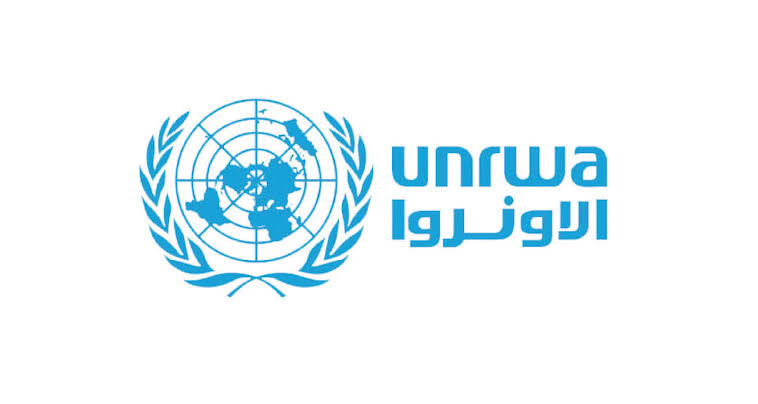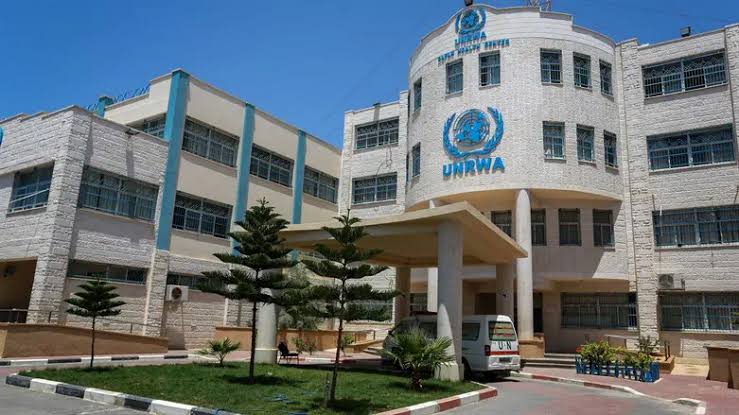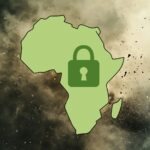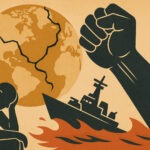In a world where international relations are often tangled in a web of diplomacy and power plays, a recent turn of events has cast a glaring spotlight on the delicate balance between humanitarian aid and national security. Welcome to a quick analys into a controversy that has shaken the foundations of the United Nations Relief and Works Agency (UNRWA), an entity caught in the crosshairs of geopolitical strife. This unfolding saga began with a shocking allegation: some of UNRWA’s staff being implicated in a Hamas attack against Israel, leading to a domino effect of funding suspensions from nations like the UK and Finland. As we unravel the layers of this complex situation, we find ourselves at a critical juncture where international policies, security concerns, and the very principles of humanitarian aid are being reexamined under the harsh light of Realism. Join in and dissect the intricate dynamics of this international crisis, where the actions of a few could potentially reshape the course of aid and diplomacy in one of the world’s most volatile regions.

Who:
- United Nations Relief and Works Agency for Palestinian Refugees in the Near East (UNRWA).
- Countries involved: United Kingdom, Finland, United States, Australia, Canada, Italy, and Israel.
- Groups involved: Hamas.
- Individuals: Philippe Lazzarini (UNRWA Commissioner-General), Israeli and Finnish foreign officials, Antonio Guterres (UN Secretary-General), Yoav Gallant (Israeli Defense Minister), Jim Risch (US Senator).
What:
- Allegations: Involvement of UNRWA staff in a Hamas attack against Israel.
- Responses: UK, Finland, and other countries suspended funding to UNRWA. UNRWA terminated contracts of accused employees and initiated an investigation.
- Israeli Accusations: Claims of collusion between World Health Organization and Hamas; repeated condemnations of UN’s approach to the Gaza conflict.
When:
- Attack: October 7, 2023.
- Funding suspension and other responses occurred subsequently, around late October or early November 2023.
Where:
- The events primarily concern Gaza, where UNRWA operates.
- The Israeli-Hamas conflict and the October 7 attack occurred in southern Israel and Gaza.
- International responses and statements were made in the respective countries of the international actors involved (UK, Finland, US, etc.).
Why:
- The funding suspension and investigation are due to concerns about the integrity and neutrality of UNRWA, given the allegations of staff involvement in terrorist activities.
- The deteriorating relationship between Israel and the UN is rooted in differing perspectives on the Gaza conflict and the approach to a ceasefire, with Israel maintaining a strong stance against Hamas.
- International responses (like funding suspension) are driven by the countries’ policies on terrorism, their stance on the Israel-Palestine conflict, and the importance they place on maintaining the credibility of international institutions like the UN.

News Summaries
- UK and Finland Suspend UN Agency Funding: The UK and Finland have joined the United States, Australia, Canada, and Italy in announcing their suspension of funds to the United Nations Relief and Works Agency for Palestinian Refugees in the Near East (UNRWA). This decision follows allegations that 12 UNRWA staff members participated in a Hamas attack against Israel on October 7, 2023. The UK Foreign Office expressed its condemnation of the attack and called for an investigation, while Finland suspended its annual funding of 5 million euros. Hamas criticized these actions and Israel’s accusation of collusion between the World Health Organization and Hamas.
- UNRWA Investigation and Israel’s Accusations: UNRWA, facing Israeli allegations of staff involvement in Hamas attacks, has terminated the contracts of the accused employees and launched an investigation. The Israeli Foreign Ministry welcomed this investigation. The controversy arises amid worsening relations between Israel and the UN, with Israel criticizing UN Secretary-General António Guterres for his approach to the conflict in Gaza. Israel remains opposed to a ceasefire despite high Palestinian casualties and widespread destruction in Gaza.
- UPDATE: The BBC article titled “Key UN Gaza Aid Agency UNRWA Runs into Diplomatic Storm” focuses on the challenges facing the United Nations Relief and Works Agency for Palestine Refugees (UNRWA) amidst the Israel-Gaza conflict. Founded in 1949, UNRWA has been a critical source of aid and services in Gaza and other regions, employing around 13,000 people in Gaza alone. The agency is now facing a funding crisis due to several Western governments, including the US and Germany, suspending their contributions. This decision follows allegations of some UNRWA staff’s involvement in attacks on Israel on October 7, 2023.
- UNRWA’s role goes beyond just distributing aid; it provides essential infrastructure, medical and educational facilities, and is the largest UN agency in Gaza. The agency has been a political point of contention, with criticisms from Israel about its operations and the perpetuation of Palestinian refugee status. Israeli authorities and watchdogs have accused UNRWA of promoting anti-Israel views and anti-Semitism through its educational materials, claims that UNRWA has denied.
- The article highlights the broader implications of the funding suspension for the 5.3 million Palestinian refugees registered with UNRWA. The piece also discusses the strained relationship between Israel and various branches of the UN, with the current government leveraging the situation to support its stance. For Israel’s Western allies, the situation presents an opportunity to balance support for Israel with continued pressure for conflict resolution. Despite funding pauses, there is recognition of UNRWA’s crucial role in Gaza’s humanitarian situation. The article ends by questioning the future of humanitarian aid in Gaza if the UN’s role is diminished.
Using Realist theory, which emphasizes power politics, national interests, and the competitive nature of international relations, here are three predictions of potential outcomes:
- Escalation of Military Actions by Israel: Realism suggests states prioritize security and survival. Given the allegations of UNRWA staff involvement with Hamas and the lack of a ceasefire, Israel might intensify its military actions in Gaza to neutralize perceived threats. This action would be based on Israel’s strategic calculation to ensure its national security, even at the risk of international condemnation.
- Continued Suspension or Reduction of Funding to UNRWA by More Countries: Realism posits that states act in their national interest. Other countries, aligning with Israel’s security concerns or under pressure from their alliances, might follow the UK and Finland in suspending funding to UNRWA. This move could be a strategic decision to maintain favorable diplomatic relations with Israel, a key player in Middle Eastern geopolitics.
- Limited Effectiveness of International Diplomatic Interventions: According to Realist theory, the effectiveness of international institutions is often limited by the power dynamics of sovereign states. Efforts by the UN or other international bodies to mediate or resolve the conflict might be constrained by the primary interests of powerful states involved. Thus, diplomatic interventions might result in stalemate or limited success, as major players like the US and Israel pursue their strategic interests.
References:
- Cnn, B. <. H. R. <. H. L. S. T. <. H. B. P. A. <. H. V. (2024, 28 enero). January 27, 2024 Israel-Hamas war. CNN. https://edition.cnn.com/middleeast/live-news/israel-hamas-war-gaza-news-01-27-24/h_6b501f180e786c8ab9249e042663be71
- UN agency fires staff members allegedly involved in October 7 attacks. (2024, 26 enero). CNN. https://edition.cnn.com/2024/01/26/middleeast/unrwa-fires-staff-members-october-7-attacks-intl/index.html
- United Nations Relief and Works Agency for Palestine Refugees in the Near East. (s. f.). UNRWA. https://www.unrwa.org/
- ChatGPT. (n.d.). OpenAI. https://chat.openai.com/#









No responses yet